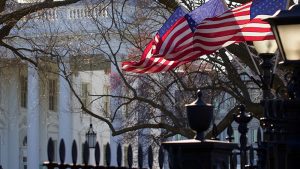Minnesota has created a centralized state fraud investigations unit operated by law enforcement at the Bureau of Criminal Apprehension and intends to use new technologies, including AI, to curb fraud.
The National Association of State Chief Information Officers (NASCIO) has released its annual list of Federal advocacy priorities.
New Jersey Gov. Phil Murphy has signed legislation that requires the Office of the Attorney General to establish an internet-based rape kit tracking system.
Washington and Monroe counties are the first in Ohio to fully implement Next Generation 9-1-1 (NextGen 911), which will help improve emergency response times and save lives.
The Pennsylvania Department of Transportation (PennDOT) has been awarded a $1.3 million SMART grant from the United States Department of Transportation (USDOT).
The Office of Management and Budget (OMB) declared an abrupt reversal today of its Jan. 27 order to freeze trillions of dollars worth of Federal grant and loan program payments after the short-lived order created nearly universal confusion over and drew opposition from several states who successfully petitioned a Federal judge to block the order from taking effect.
Wayne State University is launching a new Data Literacy Institute with the end goal of improving student success at the Detroit-based university.
A new survey from the American Association of Colleges & Universities (AAC&U) and Elon University’s Imagining the Digital Future Center is casting doubt on whether colleges and universities are ready for significant deployment of generative artificial intelligence (GenAI) tools across their campuses.
New York Gov. Kathy Hochul has begun her official push to restrict smartphones in schools, to “ensure distraction-free learning” statewide.
The School District of Philadelphia, Pa., has rolled out a new customer service platform called Let’s Talk.













